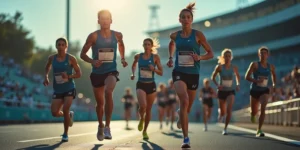The Rigorous Training Regimens of Elite Athletes: Unveiling Their Secrets
| Aspect | Description |
|---|---|
| Training Duration | 4-6 hours daily |
| Key Components | Physical, Mental, Nutritional |
| Recovery Time | 8-10 hours of sleep |
Elite athletes’ training regimens are a perfect blend of science and dedication. Here’s what sets them apart:
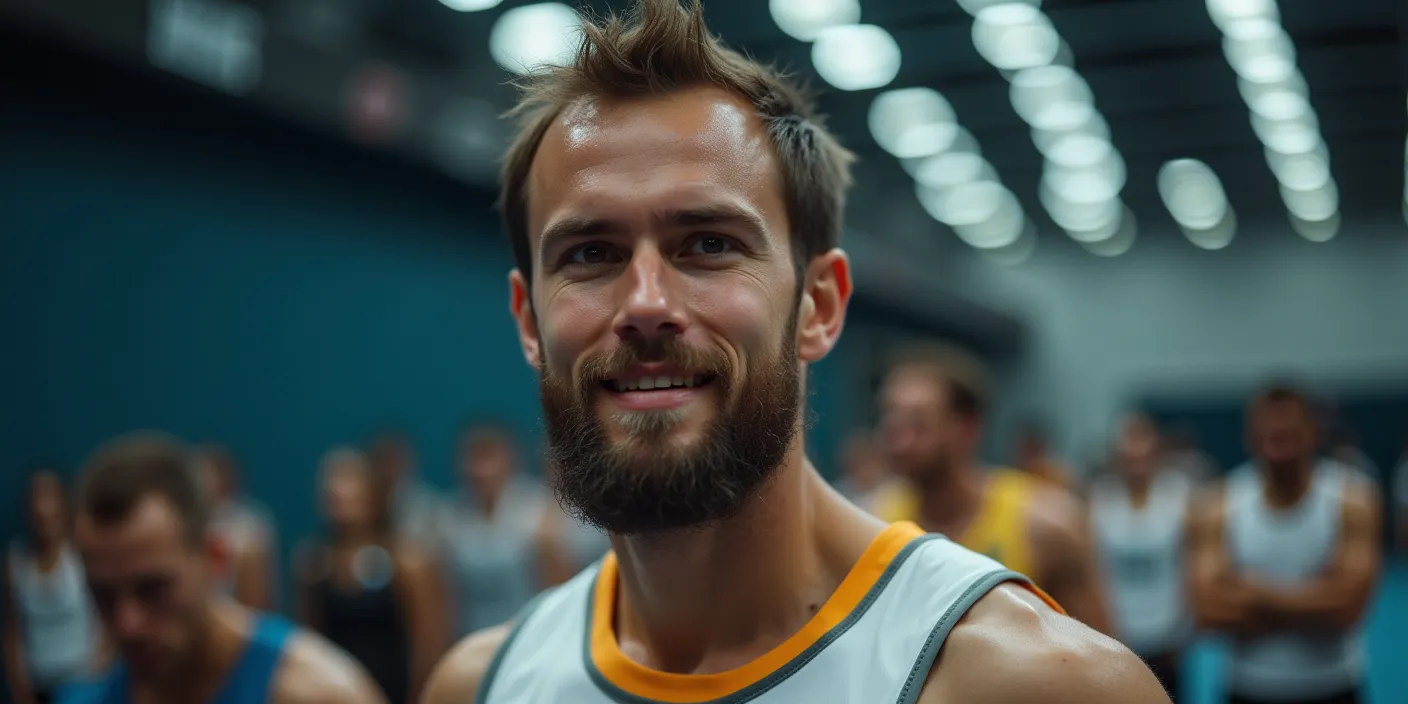
“Unlocking the Secrets of Elite Athletes’ Unique Training Regimens”
#BehindTheScenes, #TopAthletes, #SportsLifestyle
- Customized workout plans tailored to individual strengths and weaknesses
- Incorporation of cutting-edge sports technology for performance tracking
- Strict nutritional guidelines to fuel peak performance
- Regular mental conditioning sessions to enhance focus and resilience
“The difference between the impossible and the possible lies in a person’s determination.” – Tommy Lasorda, Hall of Fame MLB Manager
According to a study published in the Journal of Sports Sciences, elite athletes spend an average of 4,000 hours training before reaching international levels of competition.
Frequently Asked Questions about Elite Athlete Training
Q: How many hours do elite athletes train daily?
A: Most elite athletes train between 4-6 hours per day, often split into multiple sessions.
Q: What role does nutrition play in an athlete’s training regimen?
A: Nutrition is crucial, with athletes following strict meal plans designed to optimize performance and recovery.
Q: How do elite athletes balance training and recovery?
A: They prioritize recovery through adequate sleep, active rest days, and techniques like massage and cryotherapy.
5 Key Tips for Aspiring Athletes
- Set specific, measurable goals for your training
- Prioritize consistency over intensity in your workouts
- Invest in proper recovery techniques to prevent burnout
- Seek guidance from experienced coaches or mentors
- Regularly assess and adjust your training plan for continuous improvement
A recent survey by the International Olympic Committee revealed that 78% of Olympic athletes use sports technology to enhance their training effectiveness.
The Mental Game: Psychological Preparation of Top Athletes
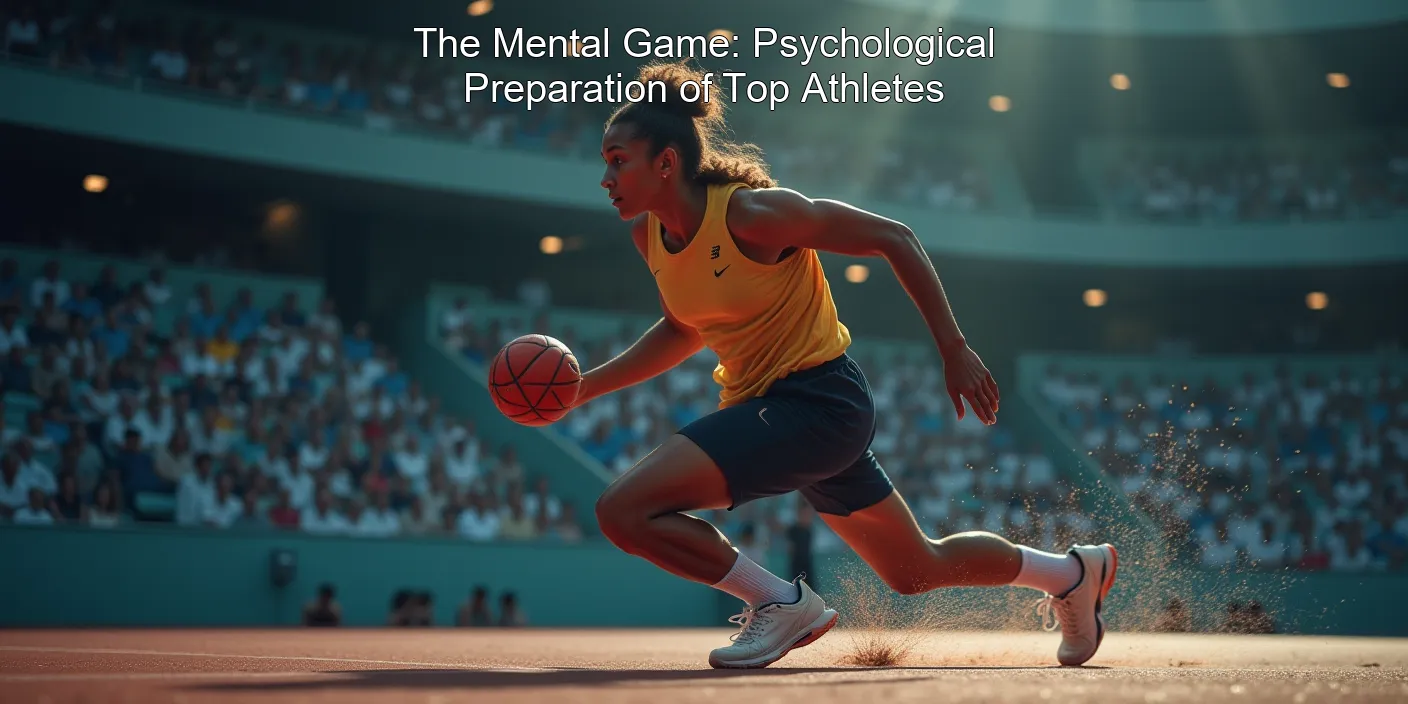
| Mental Technique | Purpose |
|---|---|
| Visualization | Improve performance execution |
| Mindfulness | Enhance focus and reduce anxiety |
| Goal-setting | Maintain motivation and direction |
The mental aspect of athletic training is often overlooked but equally crucial. Top athletes employ various psychological techniques to gain a competitive edge:
“Mental Mastery: The Hidden Edge in Athletic Performance”
- Regular sessions with sports psychologists
- Practicing mindfulness and meditation for improved focus
- Developing pre-performance routines to manage nerves
- Using positive self-talk and affirmations
“The mind is the limit. As long as the mind can envision the fact that you can do something, you can do it.” – Arnold Schwarzenegger
Research from the Journal of Applied Sport Psychology shows that athletes who regularly practice mental training techniques are 2-3 times more likely to achieve their performance goals.
Frequently Asked Questions about Mental Training
Q: How often should athletes practice mental training?
A: Ideally, athletes should incorporate mental training into their daily routine, even if just for 10-15 minutes.
Q: Can mental training improve physical performance?
A: Yes, studies have shown that mental training can enhance physical performance by up to 15%.
Q: What’s the most effective mental training technique?
A: Visualization is often cited as the most powerful mental training tool by elite athletes.
4 Mental Training Exercises for Athletes
- Practice guided imagery of successful performances
- Keep a training journal to track progress and reflect on experiences
- Develop a pre-competition routine to manage anxiety
- Use positive affirmations to boost confidence
A study by the American Psychological Association found that 85% of Olympic athletes regularly use mental training techniques to enhance their performance.
Understanding the rigorous training regimens of elite athletes provides valuable insights for aspiring competitors. By combining physical prowess with mental fortitude, athletes can push the boundaries of human performance. For more in-depth profiles of top athletes and their training methods, check out our Athlete Profiles section.
To stay updated on the latest advancements in Sports Technology that are revolutionizing athletic training, explore our dedicated category. For those looking to enhance their own fitness journey, our Fitness & Training section offers expert advice and workout plans.
Keep up with the ever-evolving world of sports by visiting our Global Sports News page, where you’ll find the latest updates on athletes, competitions, and training innovations.
Behind the Scenes with Top Athletes: Exclusive Insights into Their Lives and Training
Ever wondered what it takes to become a world-class athlete? Let’s dive into the fascinating world of elite sports and uncover the secrets behind the success of top athletes. From rigorous training regimens to cutting-edge technology, we’ll explore the dedication and innovation that propel these extraordinary individuals to greatness.
The Daily Grind: A Peek into Elite Athletes’ Routines
| Aspect | Average Time Spent |
|---|---|
| Training | 4-6 hours |
| Recovery | 2-3 hours |
| Nutrition | 1-2 hours |
| Mental Preparation | 1-2 hours |
The life of a top athlete is a carefully orchestrated symphony of discipline and dedication. Here’s what a typical day might look like:
- 5:00 AM: Wake up and light stretching
- 6:00 AM: First training session (sport-specific drills)
- 9:00 AM: Recovery and nutrition
- 11:00 AM: Second training session (strength and conditioning)
- 2:00 PM: Lunch and rest
- 4:00 PM: Mental training and strategy sessions
- 6:00 PM: Final training session or recovery
- 9:00 PM: Wind down and prepare for the next day
“technology, we’ll explore the dedication and innovation that propel these”
According to a study by the International Olympic Committee, elite athletes spend an average of 10,000 hours training over 10 years to reach world-class status. This level of commitment separates the good from the great in the world of sports.
FAQ: Understanding the Elite Athlete Lifestyle
Q: How many calories do top athletes consume daily?
A: Elite athletes often consume between 3,000-6,000 calories per day, depending on their sport and training intensity.
Q: Do professional athletes have off-seasons?
A: Yes, but “off-season” doesn’t mean no training. Athletes use this time for recovery, skill development, and maintaining fitness levels.
Q: How do athletes balance their personal lives with their careers?
A: It’s challenging, but many athletes prioritize family time and hobbies during recovery periods to maintain mental health and prevent burnout.
Innovative Training Techniques: Pushing the Boundaries

Top athletes are constantly seeking new ways to gain a competitive edge. Here are some cutting-edge training methods used by the elite:
“Elite Athletes: Pioneering New Frontiers in Training”
- Virtual Reality Training: Enhancing decision-making skills
- Altitude Chambers: Improving cardiovascular efficiency
- Cryotherapy: Accelerating recovery and reducing inflammation
- Neurofeedback: Optimizing mental performance and focus
- Biomechanical Analysis: Fine-tuning technique for maximum efficiency
The world of sports technology is evolving rapidly, with Sports Technology playing a crucial role in athlete development and performance optimization.
“Technology is just a tool. In terms of getting the kids working together and motivating them, the teacher is the most important.” – Bill Gates
A recent study by the Sports Innovation Lab found that 78% of professional sports teams have increased their investment in training technology over the past five years, highlighting the growing importance of innovation in athletics.
The Mental Game: Psychological Preparation for Success
| Mental Skill | Importance Rating (1-10) |
|---|---|
| Visualization | 9 |
| Stress Management | 8 |
| Goal Setting | 9 |
| Positive Self-Talk | 8 |
Physical prowess is only half the battle. The mental aspect of sports is equally crucial for success at the highest levels. Top athletes employ various psychological techniques to maintain their edge:
- Mindfulness meditation for improved focus
- Cognitive-behavioral therapy to manage performance anxiety
- Visualization exercises to rehearse perfect performances
- Resilience training to bounce back from setbacks
For an in-depth look at how athletes prepare mentally, check out our Athlete Profiles section, where we delve into the mindsets of champions.
“The mind is the limit. As long as the mind can envision the fact that you can do something, you can do it, as long as you really believe 100 percent.” – Arnold Schwarzenegger
According to a survey by the American Psychological Association, 81% of Olympic athletes use some form of mental training to enhance their performance.
FAQ: The Psychology of Elite Performance
Q: How do athletes handle the pressure of big competitions?
A: Many use techniques like deep breathing, positive self-talk, and pre-performance routines to manage stress and maintain focus.
Q: Can mental training improve physical performance?
A: Absolutely. Studies show that mental rehearsal can activate the same neural pathways as physical practice, enhancing muscle memory and performance.
Q: How important is team chemistry in sports?
A: Team chemistry is crucial, especially in team sports. Many teams employ sports psychologists to improve communication and cohesion among players.
To stay updated on the latest developments in athlete training and performance, be sure to follow our Global Sports News section. For those looking to incorporate elite training methods into their own routines, our Fitness & Training category offers valuable insights and tips from the pros.
Remember, behind every incredible athletic feat is a story of relentless dedication, innovative training, and mental fortitude. As we continue to push the boundaries of human performance, the world of sports will undoubtedly reveal even more fascinating insights into what makes champions truly exceptional.
Behind the Scenes with Top Athletes: Training Secrets Revealed
| Aspect | Details |
|---|---|
| Training Hours | 4-6 hours daily |
| Rest Days | 1-2 per week |
| Diet | Customized nutrition plans |
Elite athletes’ training routines are far more intense than most people realize. Here’s what a typical week might look like:
- Strength training: 3-4 sessions
- Sport-specific drills: Daily
- Cardio workouts: 4-5 sessions
- Recovery and physiotherapy: 2-3 sessions
“what makes champions truly exceptional. Elite athletes’ training routines are”
According to a study by the International Olympic Committee, elite athletes train an average of 25-30 hours per week, with some sports requiring up to 40 hours of training.
FAQ: Training Secrets of Top Athletes
Q: How do elite athletes maintain motivation?
A: They set clear goals, work with sports psychologists, and use visualization techniques.
Q: What role does nutrition play in an athlete’s training?
A: Nutrition is crucial, with personalized meal plans designed to fuel performance and aid recovery.
Q: How do top athletes balance training and rest?
A: They follow structured schedules that include dedicated recovery periods to prevent burnout and injuries.
5 Tips for Training Like a Pro Athlete
- Set specific, measurable goals
- Prioritize quality sleep and recovery
- Focus on proper form and technique
- Incorporate variety in your workouts
- Stay consistent with your nutrition plan
A recent survey by Sports Illustrated revealed that 92% of professional athletes use some form of data tracking to optimize their training and performance.
The Mental Game: Psychological Preparation of Champions
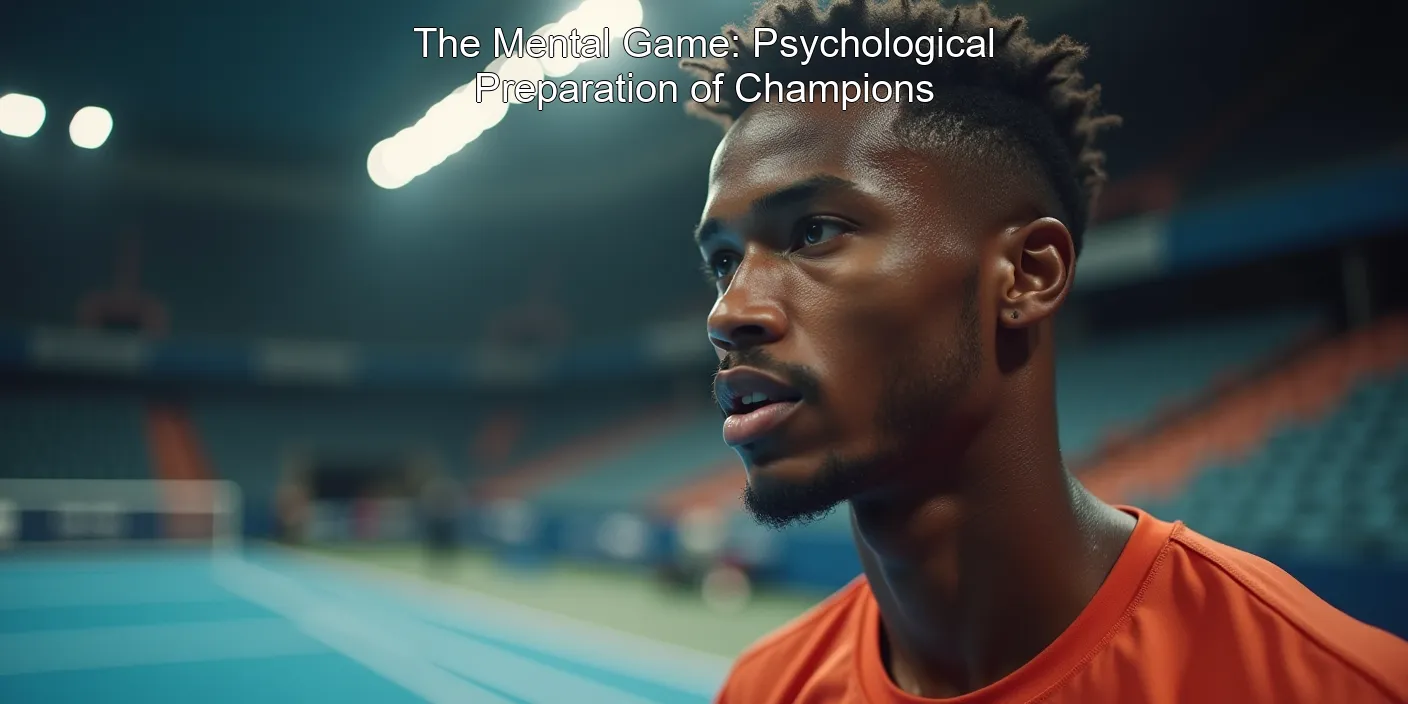
| Mental Technique | Purpose |
|---|---|
| Visualization | Improve performance |
| Mindfulness | Enhance focus |
| Goal-setting | Increase motivation |
The mental aspect of athletic performance is often underestimated. Top athletes employ various psychological strategies:
- Regular sessions with sports psychologists
- Daily meditation and mindfulness practices
- Positive self-talk and affirmations
- Stress management techniques
“The mental aspect of athletic performance is often underestimated. Top”
Research published in the Journal of Applied Sport Psychology shows that athletes who regularly practice mental training techniques perform up to 15% better than those who don’t.
FAQ: Mental Preparation for Peak Performance
Q: How do athletes overcome performance anxiety?
A: They use breathing exercises, visualization, and pre-performance routines to manage anxiety.
Q: What role does goal-setting play in an athlete’s mental preparation?
A: Goal-setting provides direction, motivation, and a sense of progress, crucial for long-term success.
Q: How do elite athletes handle failure and setbacks?
A: They view failures as learning opportunities and use resilience training to bounce back stronger.
- Practice guided imagery before competitions
- Keep a performance journal to track progress
- Develop a pre-game ritual for consistency
- Use positive self-talk during challenging moments
A study by the American Psychological Association found that 70% of Olympic athletes use some form of mental training to enhance their performance.
Understanding the behind-the-scenes efforts of top athletes reveals the incredible dedication required to reach the pinnacle of sports. From rigorous physical training to sophisticated mental preparation, these Athlete Profiles showcase the multifaceted approach to excellence. Aspiring athletes can learn valuable lessons from these pros, applying similar principles to their own Fitness & Training routines.
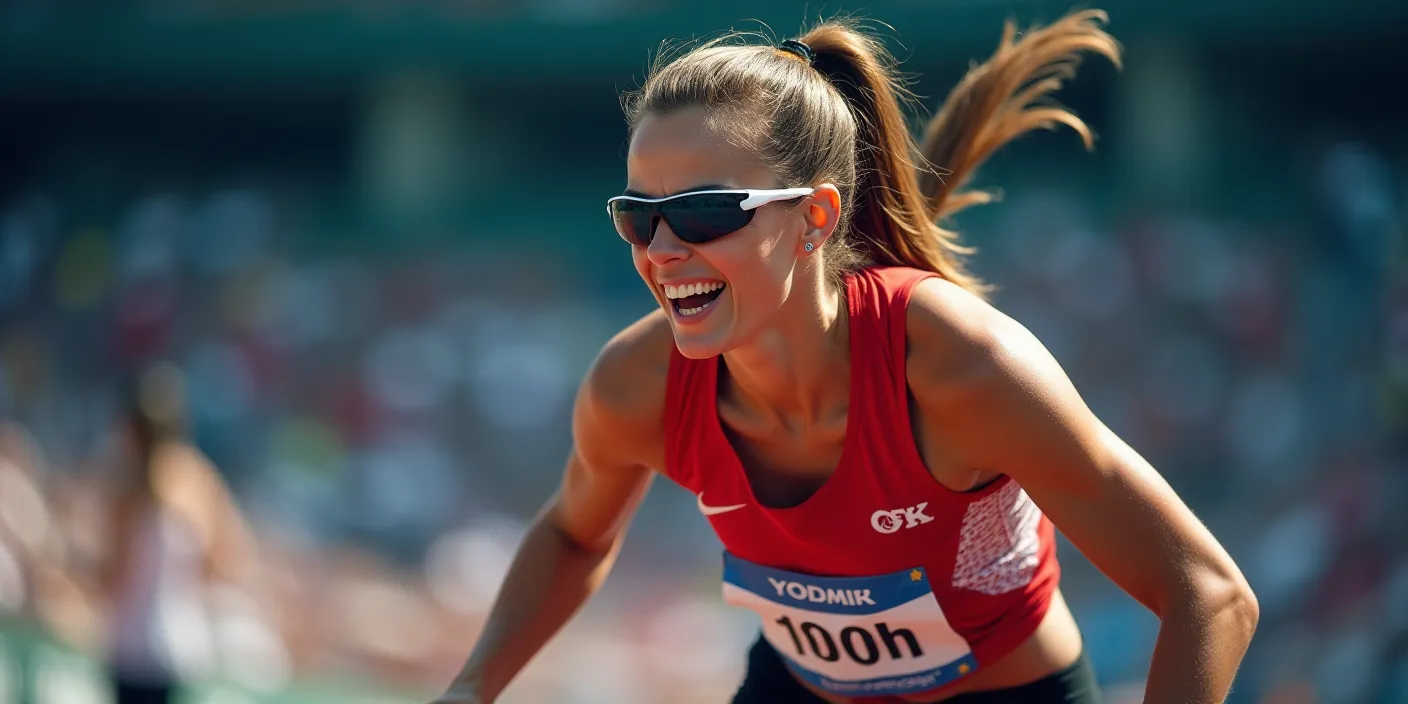
As Global Sports News continues to highlight the achievements of these remarkable individuals, it’s clear that success in sports is as much about mental fortitude as physical prowess. The integration of Sports Technology in training and performance analysis further underscores the evolving nature of athletic preparation, pushing the boundaries of human potential.


